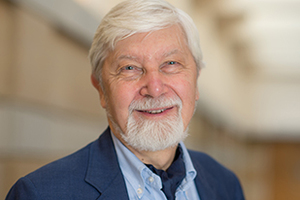
The 2016 Nobel Peace Prize was awarded to Colombian President Juan Manuel Santos “for his resolute efforts to bring the country’s more than 50-year-long civil war to an end.”
Santos’ selection for the Noble Peace Prize, while surprising to some following Colombians’ rejection of the peace accord, is welcome, according to Peter Wallensteen, Richard G. Starmann Sr. Research Professor of Peace Studies at the Kroc Institute for International Peace Studies.
“Santos’ selection for the Nobel Peace Prize is in line with the will of Alfred Nobel, the Swedish founder of the Nobel prizes,” Wallensteen says. “It will serve as an encouragement to all those who have been engaged in this peace process, including the Peace Accords Matrix (PAM) initiative at Notre Dame’s Kroc Institute, which is mentioned in the treaty as having primary responsibility for technical verification and monitoring of implementation of the Colombia peace accord.
The peace process has been indigenously driven and covers the key aspects that led to the conflict. It has been long and thorough. The Nobel Committee asserts that the ‘no vote’ was not a vote against peace, but against a particular treaty, thus leaving space for new initiatives. It now remains to be seen what initiatives President Santos will take in order to meet the expectations generated by this award.”
The Kroc Institute’s inclusion in the Colombia accord is the first time a university-based research center has played such a direct role in supporting the implementation of a peace agreement.
The PAM project measures the progress of peace agreements on a systematic comparative basis. Its database tracks the implementation status of 34 recent comprehensive peace accords by assessing 51 distinct provisions year-by-year for 10 years in quantitative and qualitative form.
Contact: Peter Wallensteen, 574-631-0935, wallensteen.4@nd.edu